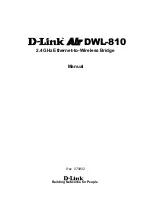
Quidway NetEngine20/20E
Configuration Guide - Basic Configurations
1 Product Overview
Issue 05 (2010-01-30)
Huawei Proprietary and Confidential
Copyright © Huawei Technologies Co., Ltd.
1-13
1.3.7 IP Services
Configuring Interface IP Address Flexibly
The NE20/20E provides rich applications based on IP address.
z
Support for multiple secondary IP addresses: Each interface can be configured with a
primary IP address and several subordinate IP addresses to be connected to different
subnets. This improves the efficiency of networking.
z
IP address negotiable: Users who access the Internet through an ISP are usually allocated
with addresses by a remote server. This requires the interface to be encapsulated with the
PPP and configured as IP address negotiable so that it can accept the IP addresses
allocated by the peer end through PPP negotiation.
z
IP unnumbered: To enable an interface not configured with an address to operate
normally, you can borrow the IP address of another interface to spare the IP address.
ARP Functions
The NE20/20E supports dynamic and static ARP functions.
Under special circumstance (such as some fixed IP addresses available on the LAN gateway),
you can use the static ARP function to bind these IP addresses to a specified network interface
card. This is to ensure that the packets heading for these addresses must be forwarded by the
gateway. When you desire to filter some illegal IP addresses, you can configure the static ARP
table manually.
DHCP Relay
The standard DHCP only applies to the cases where the DHCP client and server lie on the
same subnet. It is necessary to set a DHCP server for every subnet in order to provide
dynamic host configuration for clients on different subnets. This is absolutely not economical.
The NE20/20E uses DHCP relay function to:
z
Provide relay service for the DHCP clients and servers across different subnets.
z
transmit DHCP packets to the destination DHCP server (or client) crossing the subnet
relay. So the DHCP clients of different subnets can share one DHCP server, and therefore,
centralized management of clients' information.
Policy-based Routing
Policy-based routing is a route selection mechanism that is based on customized policy. The
policy-based routing provided by the NE20/20E supports flexible route assignment based on
such information of the input packets as source address and address length.
Multicast packets are usually forwarded according to the routing table. By customizing the
routing policy for multicast traffic, however, you can have multicast packets forwarded
according to a specific policy.
1.3.8 Unicast Routing Protocols
In terms of routing protocols, the NE20/20E can:
z
Support both static routing and dynamic routing protocols such as RIP, OSPF, IS-IS and
BGP.
















































